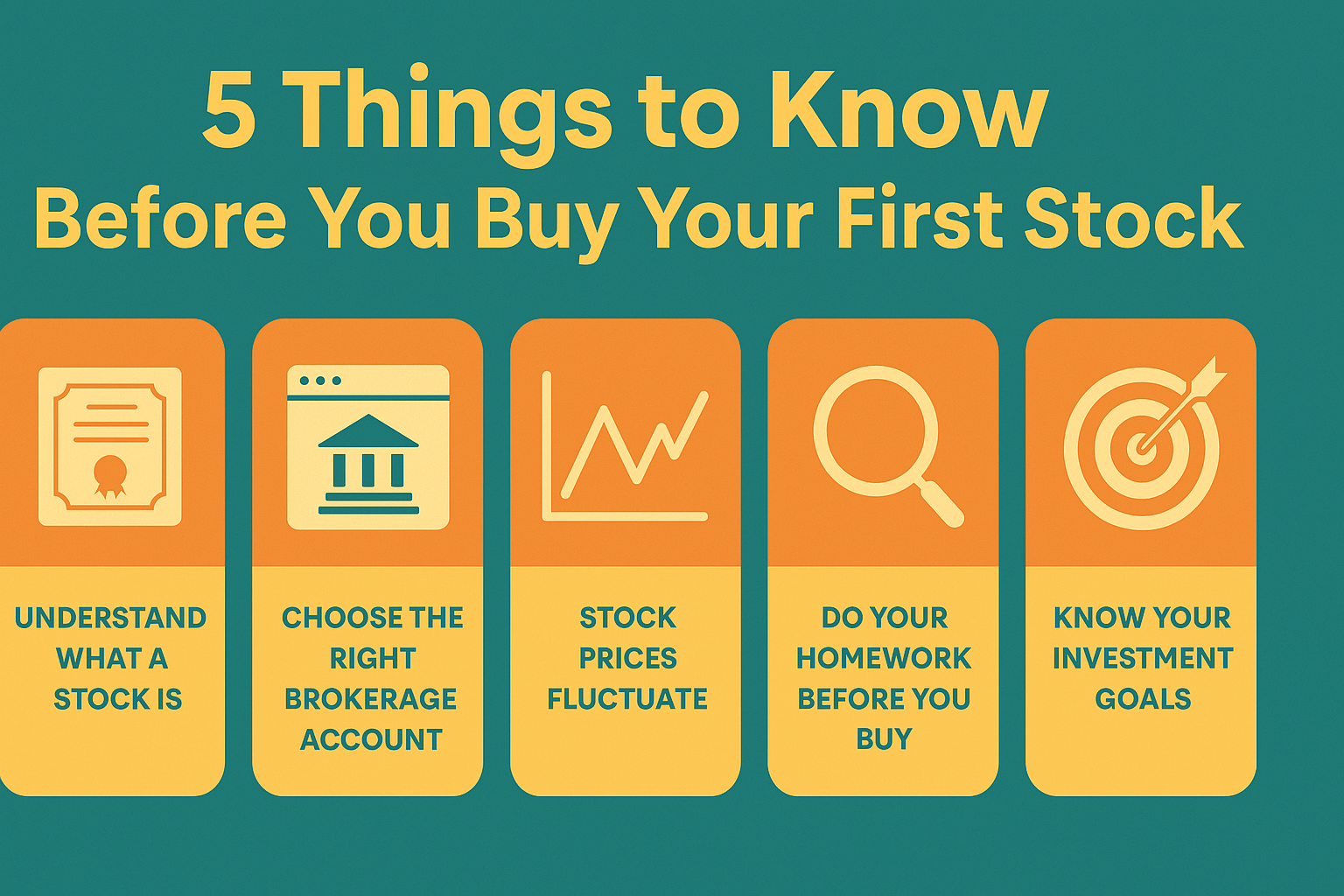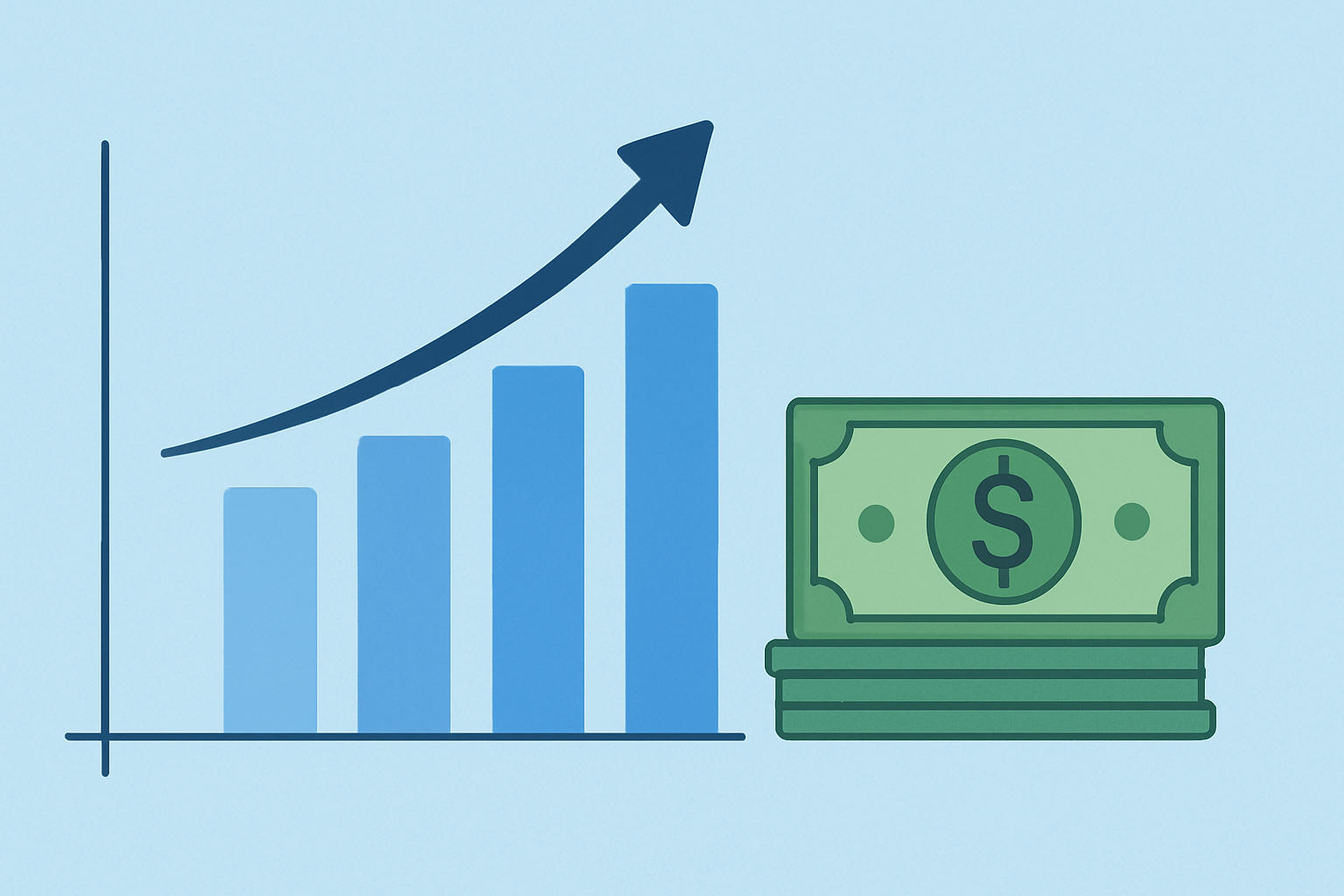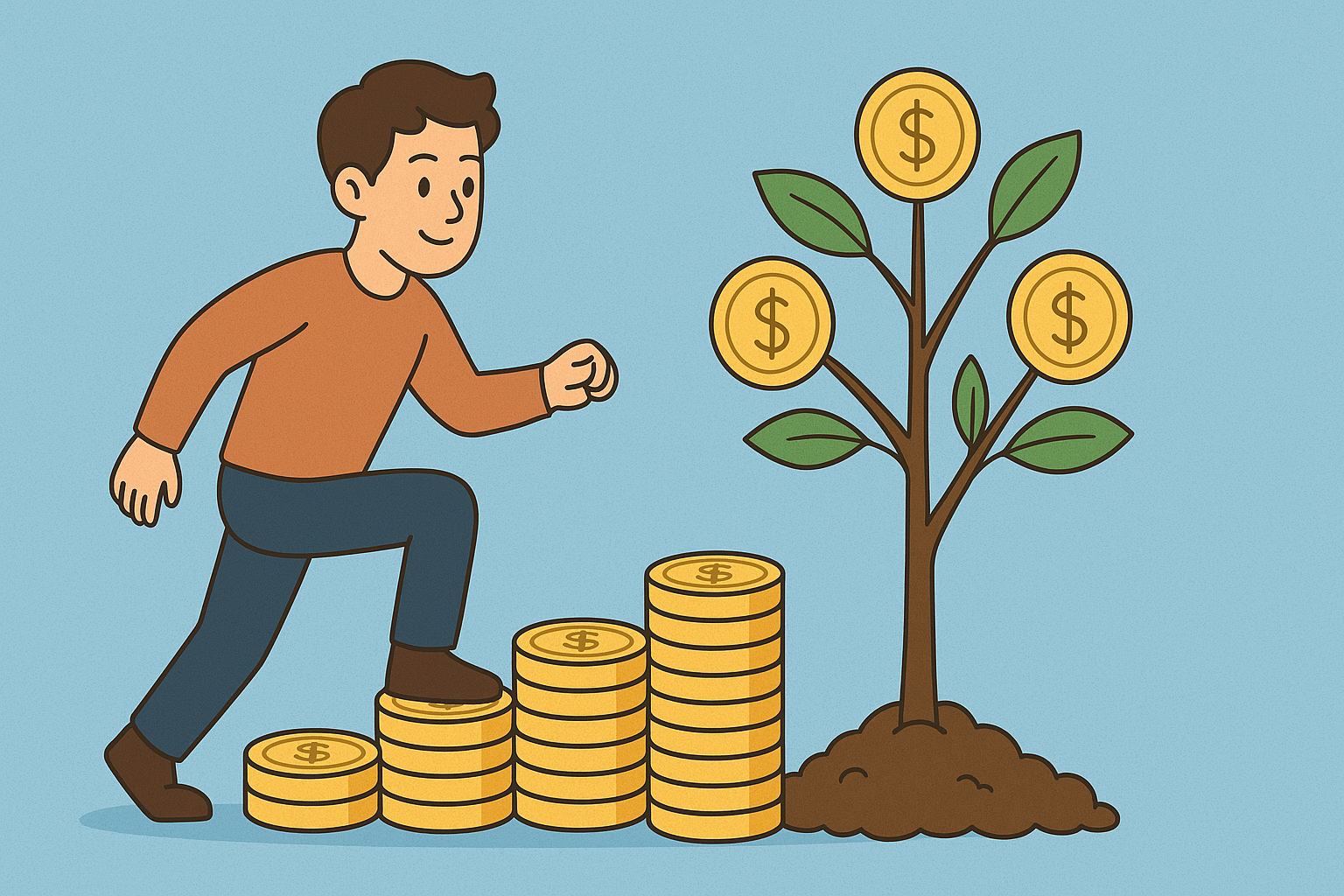5 Things to Know Before You Buy Your First Stock
Getting ready to buy your first stock? That’s a huge step — and it can be both exciting and a little scary.
You might’ve heard stories about people turning a few dollars into fortunes. But the truth is, smart investing starts with understanding the basics.
Before you make your first purchase, here are 5 essential things you need to know before you buy your first stock — so you can skip the rookie mistakes and start strong.
Jumping into the stock market for the first time can feel exciting — and intimidating. You’ve probably heard success stories about people turning small investments into big returns, but you’ve also heard warnings about risks and losses.
Before you buy your first stock, it’s crucial to understand a few key things that can help you avoid rookie mistakes and build long-term wealth. Let’s break it down in simple terms so you can invest confidently.
Understand What a Stock Actually Is
Before you buy a stock, know what you’re buying.
A stock represents a share in the ownership of a company. When you buy one, you’re essentially becoming a partial owner. This means
-
You benefit when the company grows (via price appreciation or dividends)
-
But you also share in its risks (if the company loses value)
Think of it like owning a slice of a pizza — if the pizza gets bigger and more valuable, your slice does too.
Common Types of Stocks:
-
Common Stock: Most investors buy this. You get voting rights and potential dividends.
-
Preferred Stock: Less common. Priority in dividends, but usually no voting rights.
Choose the Right Brokerage Account
To buy stocks, you need a brokerage account — your gateway to the stock market.
Top Beginner-Friendly U.S. Platforms:
-
Robinhood—Simple UI, commission-free trades
-
Fidelity—Great research tools, zero commissions
-
Charles Schwab—Excellent customer service and education
-
SoFi Invest—Good for small investors with automatic investing options
Make sure the brokerage you choose is
-
Registered with FINRA
-
Insured by SIPC (which protects up to $500,000 of your securities)
Pro tip: Most of these platforms allow you to start with as little as $1 thanks to fractional shares!
Stock Prices Fluctuate — And That’s Normal
When you invest in stocks, the price can go up or down daily based on:
-
Company performance (profits, news)
-
Economic indicators (inflation, jobs report)
-
Market sentiment (fear, hype, headlines)
This is called volatility, and it’s part of the game. Don’t panic if your stock drops 5% tomorrow — long-term investors ride through these waves.
📈 Remember: The stock market has historically trended upward over long periods.
So unless you’re a day trader (which most beginners shouldn’t be), don’t obsess over daily movements.
Do Your Homework Before You Buy
Don’t just buy a stock because it’s trending on Reddit or social media.
Before buying, research:
-
Company fundamentals (earnings, revenue, debt)
-
Competitors and industry trends
-
Past performance (but don’t base future expectations solely on this)
-
Valuation (is the price fair?)
Tools You Can Use:
-
Yahoo Finance
-
Morningstar
-
Seeking Alpha
-
Your brokerage’s research section
It’s also a good idea to start with companies you already know and trust (think Apple, Starbucks, Microsoft, etc.).
Know Your Investment Goals and Time Horizon
Are you investing for the next 6 months? Or for 10+ years?
Your goals and timeline should guide your stock choices. Here’s a simple breakdown:
| Time Horizon | Ideal Strategy |
|---|---|
| < 3 years | Avoid stocks (too volatile); consider savings/CDs |
| 3–5 years | Mix of stable dividend-paying stocks & ETFs |
| 5+ years | Growth stocks, ETFs, long-term holds |
If your goal is long-term wealth building (like retirement or buying a home in 10 years), then buy-and-hold investing is your best bet.
Bonus Tip: Consider setting up a Roth IRA to invest tax-free for retirement.
Bonus: Avoid These First-Time Investor Mistakes
-
Putting all your money into one stock
→ Diversify to spread risk -
Trying to time the market
→ Time in the market beats timing the market -
Ignoring fees or taxes
→ Some platforms charge hidden fees or short-term capital gains tax -
Investing money you can’t afford to lose
→ Always keep an emergency fund before investing
Final Thoughts
Buying your first stock can be a thrilling experience — it marks the start of your journey toward financial freedom. But knowledge is your best investment tool.
Start small. Stay consistent. Focus on learning, not just earning.
The stock market rewards patience, not panic.
Whether you’re investing $5 or $500, you’ve taken the most important step — starting.





You should take part in a contest for one of the best blogs on the web. I will recommend this site!